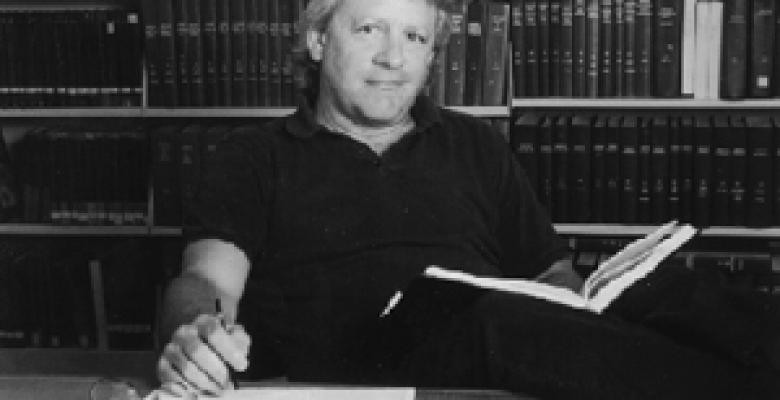Prof. Stuart Firestein Explains Why Ignorance Is Central to Scientific Discovery

Stuart Firestein, a professor and chair of the biological sciences department, is a connoisseur of ignorance. He teaches a popular course by that name to graduating seniors, and it is the title of his recently published book, "Ignorance: How it Drives Science" (Oxford University Press).
Firestein chose that title for his course, which he started teaching in 2006, to be provocative, figuring it would grab the attention of undergraduates paging through the College’s course guide. But he wasn’t being facetious.
“I’m not talking about stupidity or callow indifference to facts,” he said. “It comes out of this notion that the one mistake that we make in teaching science—especially to undergraduates—is that we just teach them a lot of facts, and that if you memorize them you’ll be fine.”
That’s not what science is about, he said. Indeed, what isn’t known is far greater than what is. “When I go to a meeting or hang out in a lab or meet up with a scientist pal, we never talk about what we know,” Firestein said. “We talk about what we don’t know.”
The benefits of ignorance in higher learning have an exalted provenance. As James Clerk Maxwell, the 19th century Scottish physicist who posited the existence of electromagnetic fields, wrote, “Thoroughly conscious ignorance is the prelude to every real advance in science.” Along those lines, Firestein cites a similar quote that he uses in his book. “Science is always wrong,” according to George Bernard Shaw. “It never solves a problem without creating 10 new ones.”
In addition Firestein also teaches “Cell and Molecular Neuroscience 1” and runs a laboratory researching the cellular mechanisms of signal transduction and olfaction, or in layman’s terms, the sense of smell. His laboratory was the first to link a specific olfactory receptor with a corresponding odor, a discovery that has been called the Rosetta Stone for understanding our sense of smell. Last year, he received a Lenfest Distinguished Columbia Faculty Award, which is given to professors for their scholarship as well as their instruction and mentoring of undergraduates and graduate students.
Firestein came to science via a most unconventional route. After graduating from high school in Philadelphia he went into the theater, becoming a stage manager and director at several repertory companies. He decided to go to college at age 30, took an animal communication course and got hooked. By the time he was 40 he had received his Ph.D. in neurobiology and then did research at Yale Medical School. He joined Columbia in 1993, attracted by the prospect of teaching students and being around professors from other disciplines.
When Firestein came up with the idea of teaching “Ignorance,” he designed it as a spring seminar for seniors, and he made it available to only 30 students because he wanted to promote lively discussions. So he didn’t realize how popular it was until its third or fourth year when, as he set up the course online, he neglected to check the box that limited its size. By the time he realized his error a day later, 90 students had signed up. Giving in to what seemed to be a demand among students, he has kept the class at about that size ever since.
It meets weekly for two hours, and at every other session professors from different science disciplines at Columbia come to speak about what they don’t know, why they care that they don’t know it, and how they came to study a certain question. There are no PowerPoint presentations, no handouts and because they’re talking about what they don’t know, little scientific jargon.
Guests have included Professor David Helfand, chair of the Astronomy Department, and Nobel laureate Martin Chalfie, the William R. Kenan, Jr. Professor of Biological Sciences. Students have a reading list and must complete a paper on a subject such as the limits of scientific knowledge.
Or the limits of facts. Firestein says that he, like many scientists, consider facts to be greatly overrated. “We all know that the next generation of scientists, with the next generation of tools, will at least revise if not overturn what’s there now,” he said.
The change could be a decimal point, or could upend or create an entirely new field of study. “Constant revision— that’s the way science works.”